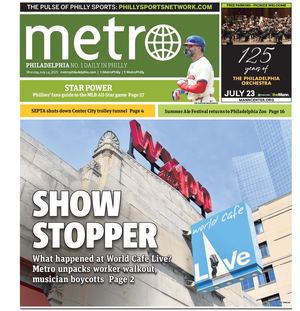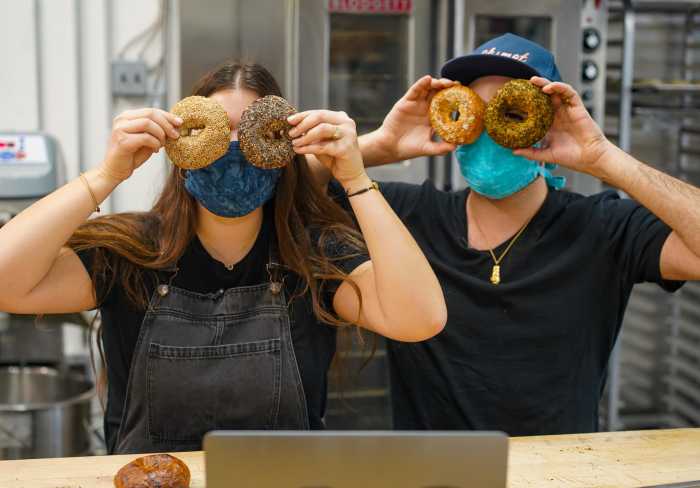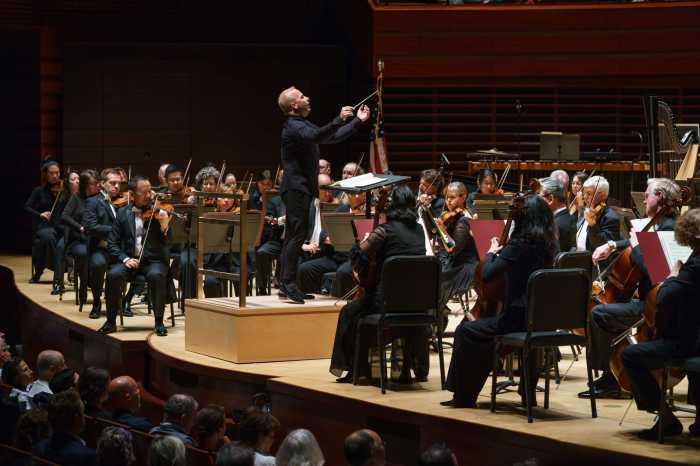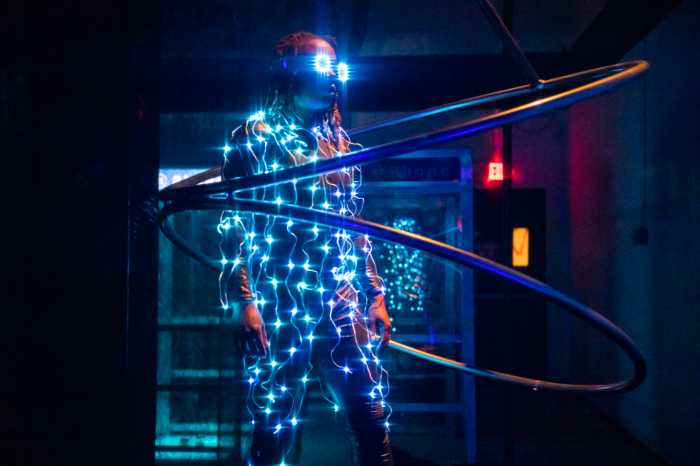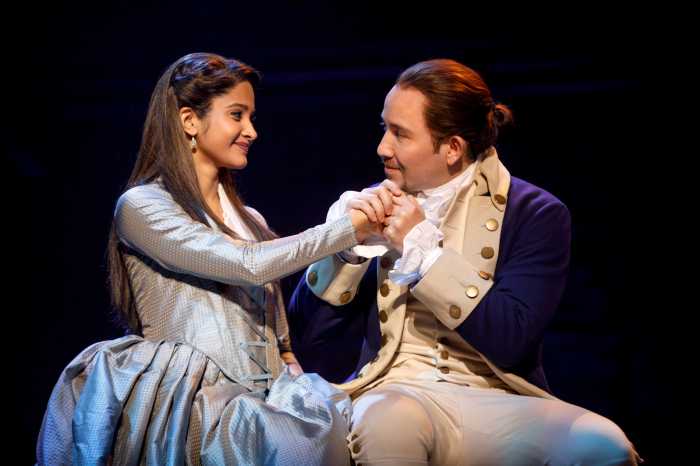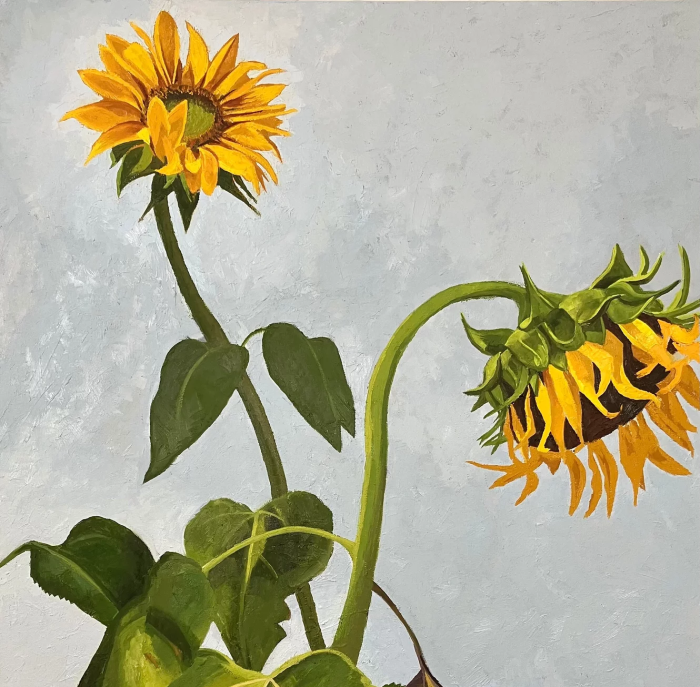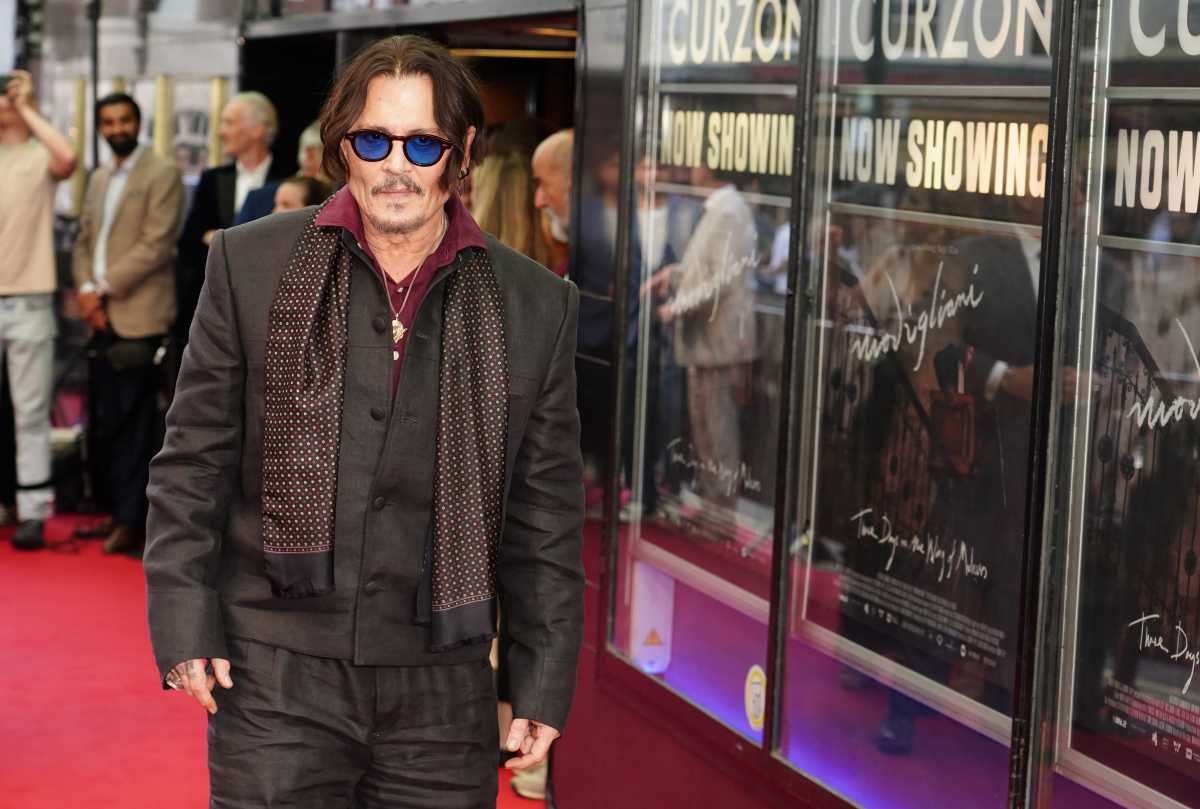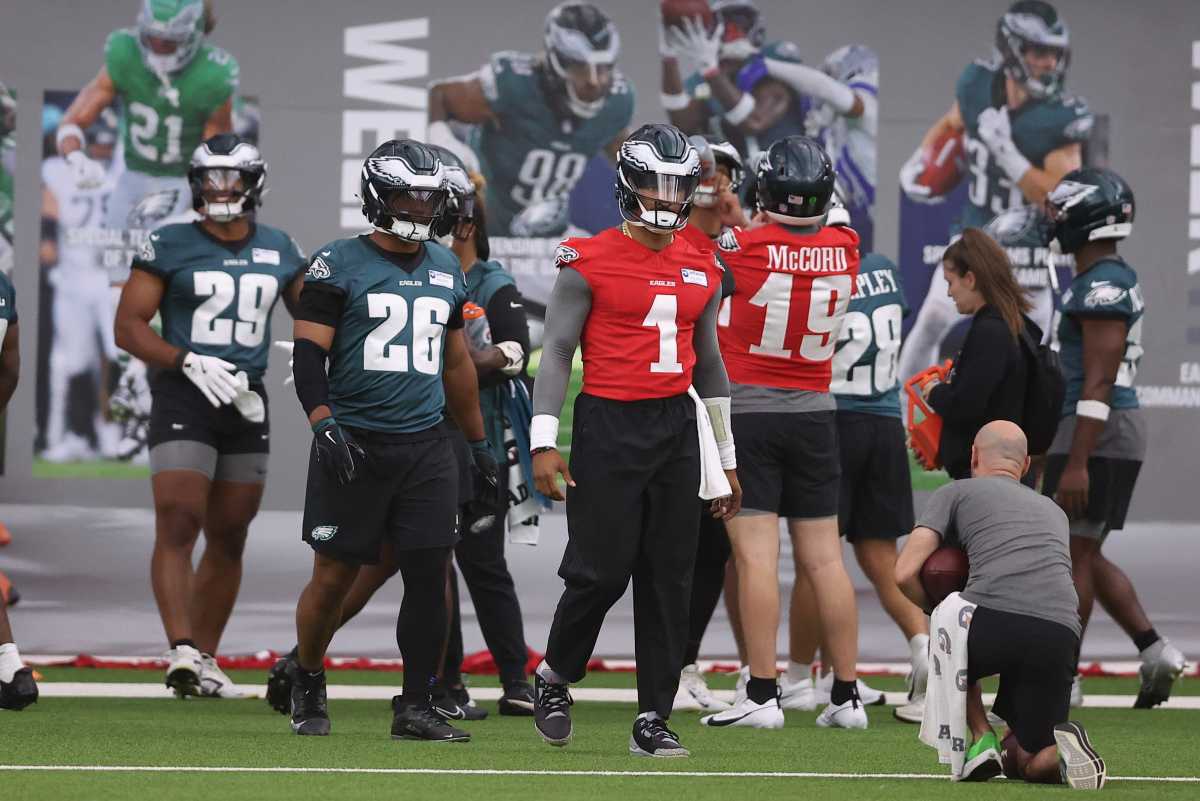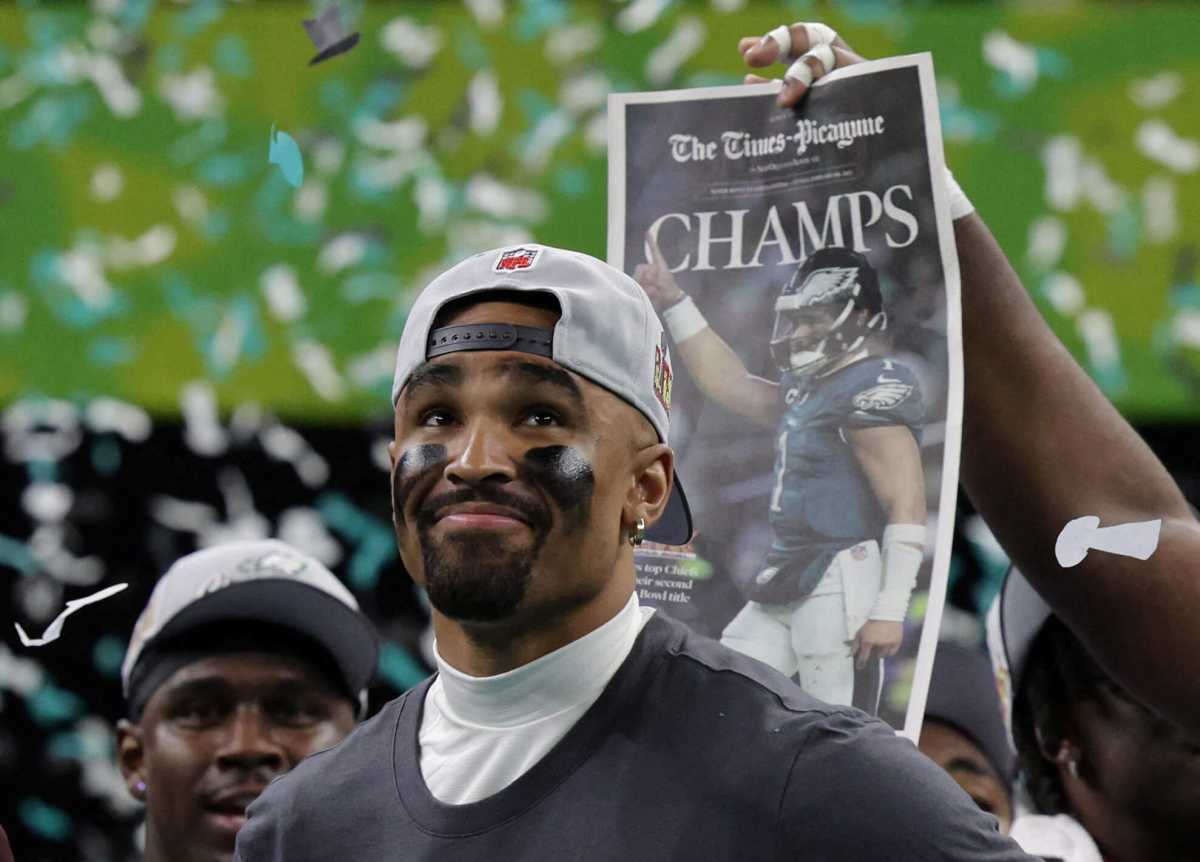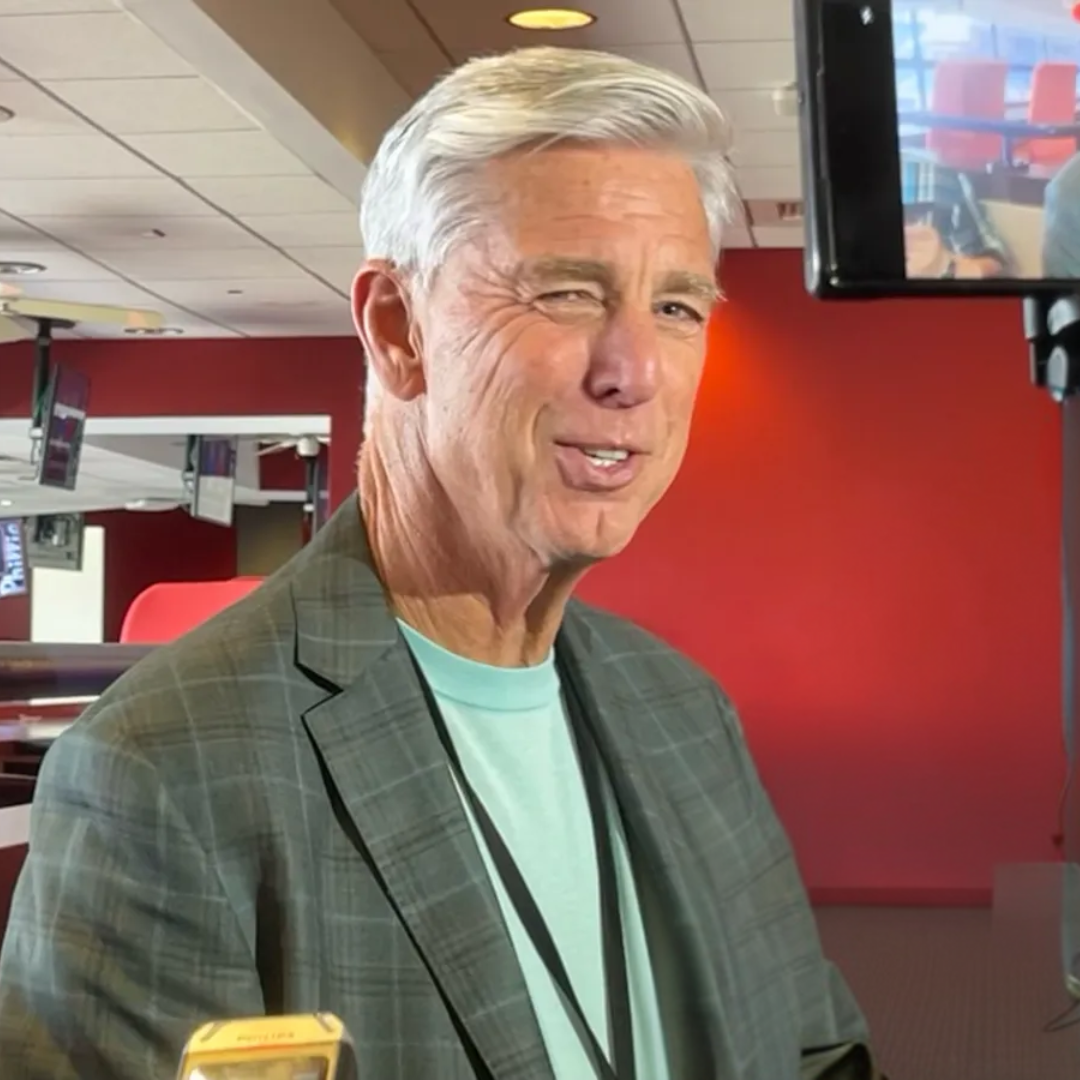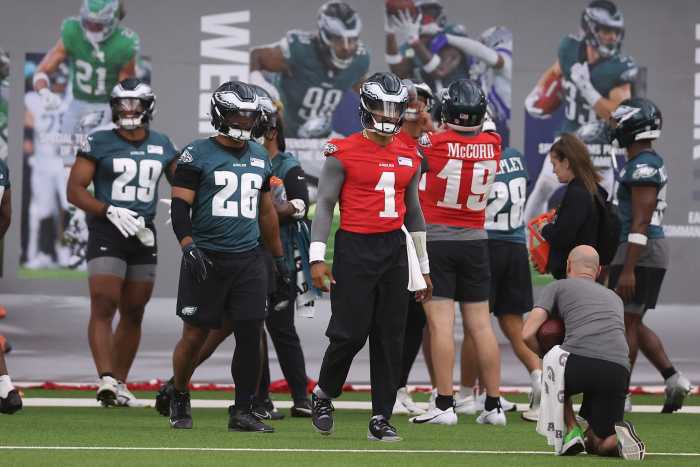Greek mythology is nothing new when you think of influences in pop culture. And that statement certainly rings true for ‘Hadestown,’ which is now on stage at the Academy of Music on the Kimmel Cultural Campus until Feb. 20. However, what this Tony Award winning musical helps bring to light is the heart of the myth and how it’s still timely today. Or, how actress Kimberly Marable puts it, “What people will take away the most is that this is a human story.”
The plot follows the myth of Orpheus and Eurydice and their quest to save their love. With that relationship also comes a connection to Hades and Persephone, both of whom sit on the thrones of the Underworld. Marable, who plays the Queen alongside Hades and also of the seasons (more on that below), was attracted most to the complex nature of her character. Persephone is a strong woman, a scorned goddess and also the catalyst of a lot of beautiful music.
This show also hits close to home for Marable, who spent time in Philly as a teacher at Drexel University. The actress was also part of the crew in pre-production before ‘Hadestown’ hit Broadway and spent time as part of the cast before the pandemic hit. With other accolades including shows such as ‘Hairspray,’ ‘The Wedding Singer,’ and ‘The Lion King,’ the actress now returns to ‘Hadestown’ almost three years after it made its award-winning debut.
Marable sat down with Metro to discuss more on why you can’t miss this immersive and timely production while it’s here in Philadelphia.
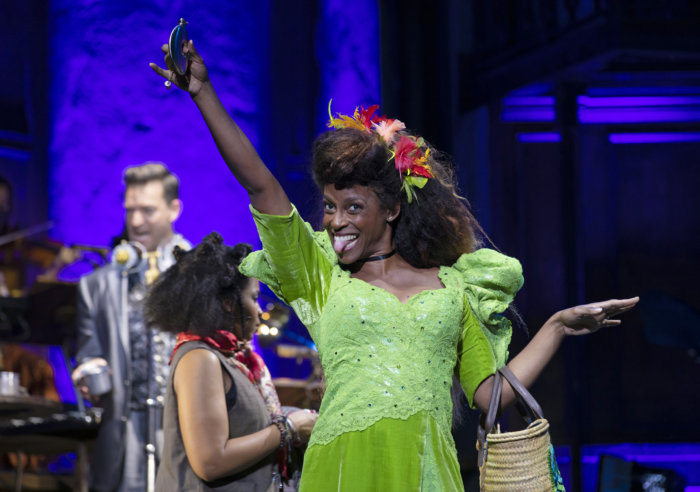
How would you describe this story?
‘Hadestown’ is based on a Greek myth [following] Orpheus and Eurydice. The myth itself sort of intertwines with Hades and Persephone—they make a very large appearance in that story. The short version is that Eurydice is escaping the ills of the world, she ends up in the Underworld and Orpheus goes to rescue her. We follow our young lovers as they try to make it back to the world of the living, and Hades—the King of the Underworld, and Persephone—the Queen of the Underworld and the seasons, watch love unfold before their very eyes.
How would you describe the music?
The music is fantastic, it’s different from any other show you will ever see. It’s written by Anaïs Mitchell, so it has that folk element, but it also has heavy influences of jazz, the New Orleans Second Line and bluegrass… it’s catchy and different.
What can you tell me about your character?
Persephone is a queen and a goddess. She’s a good time girl, she likes to have her libations—but also, she’s compassionate, strong-willed and empathetic. There’s something really cool about watching two people fall in love and then fight for that love, and then in turn, be inspired to do the same—[that happens] in my own situation with Persephone and Hades onstage. How the myth goes: Persephone eats six pomegranate seeds, so the fates say you’ve eaten six seeds, so now you need to spend six years below the ground—thus creating fall and winter. And then for the other six months, Persephone is able to be above ground. So sort of thematically, our show discusses climate change and [how] the seasons are out of whack. Hades and Persephone are sort of on the outs. Things are off-balance, and we love that Orpheus and Eurydice find and fight for their love. It reminds us of the love that we have. It’s cool to have that complex relationship and storyline as a woman in a musical.
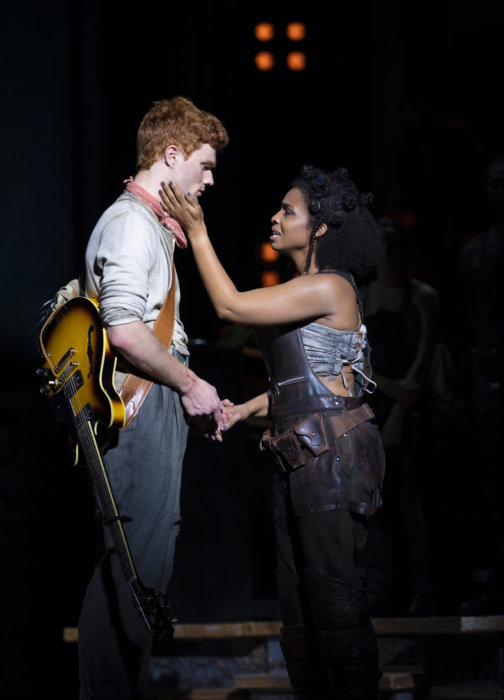
How does it feel to be back performing in a city where you spent time teaching?
Drexel has really smart and kind and creative students, and I’m thrilled to be performing there again. I’m equally as excited to meet my students and share this artistic experience with them. In the classroom, sometimes things can get really… academic. I think it will be really special to share in a creative way where it’s not me watching them sing and giving them a grade. Rather they can sit and enjoy and have an artistic and emotional human journey.
Any moments or songs that you look forward to from the show for audiences to see?
So many. I’ll give you three: One is my song, I just think Persephone has the best songs, I certainly love singing them. But my favorite is ‘Our Lady of the Underground.’ It’s our opening of Act II and it’s sort of a jazz songstress/comedian/woman scorned re-entry into what we’re about to get into in ‘Hadestown.’ Another moment that will blow people away is ‘Wait for Me’—both are a reprieve, but both will be surprising to people, especially if you’re not familiar with the show. There’s also a beautiful song at the end called ‘We Raise Our Cups,’ and it’s a really nice way for us as the onstage players and band to commune with the audience and stand together as human beings. We went through this together, and now we can go out into the world and hopefully be better humans.
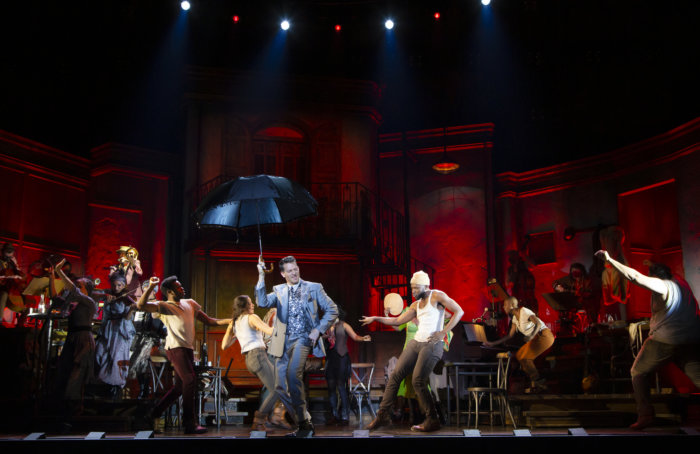
What do you hope audiences take away from ‘Hadestown’?
I think what people will take away the most is that this is a human story. There are a lot of musicals that draw from modern influences of movies and books and things—but I think there’s something really special about it being a 3,500-year-old story. It needs and deserves to be told again and again with a new lens. I believe that we’ve certainly done that and we’ve allowed for the humanity of the myth to take a front seat, which, I think makes it accessible.
